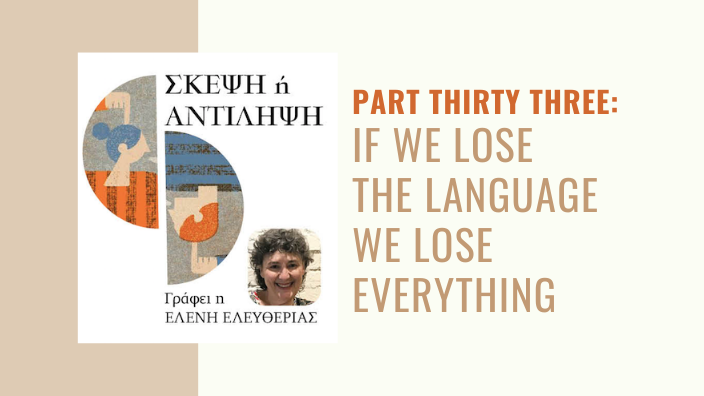By Eleni Elefterias
According to a book on linguistics I have recently been reading by Carmen Llamas and Dominic Watt, “Language not only reflects who we are but in some sense it is who we are, and it’s use defines us both directly and indirectly.”
Our relationship with language and identity is never static however. It changes depending on the situation we are in, the place we are in and who we communicate with. This is why years ago I held a concert called Identity in the Sand because as a child of migrants myself I found that my identity and language needs and uses would change depending on the situation or place I found myself in. Just like the sand beneath our feet it is never static.
“Both” our language and our identity “are constantly shifting and being re-negotiated in response to ever-changing contexts and interactions”.

The meaning of what makes each of us Greek therefore may not be the same for each of us. For some it is Greek dancing, for others it may be Greek films and music. For others it could be Cretan culture or Pontic food. Our familial culture that we get from our families and their ties to a village, a town or an island is just as important in the formation of our idea of what being Greek is all about just as language is.
‘Greek’ is a space we create for ourselves and our friends and family who share common interests and / or beliefs, possibly a common dialect and common ethics. Not all Greek spaces are the same and in fact, depending on what part of the Greek world we are from, they can in fact be almost foreign to us. Next week I will look at nationality and myths surrounding our own Greek identity.
